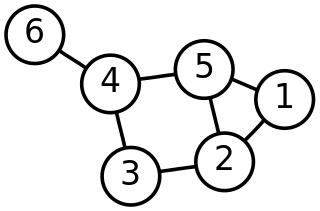Algorithmic may refer to:
- Algorithm, step-by-step instructions for a calculation
- Algorithmic art, art made by an algorithm
- Algorithmic composition, music made by an algorithm
- Algorithmic trading, trading decisions made by an algorithm
- Algorithmic patent, an intellectual property right in an algorithm
Algorithmic trading is a method of executing a large order using automated pre-programmed trading instructions accounting for variables such as time, price, and volume to send small slices of the order out to the market over time. They were developed so that traders do not need to constantly watch a stock and repeatedly send those slices out manually. Popular "algos" include Percentage of Volume, Pegged, VWAP, TWAP, Implementation Shortfall, Target Close. In the twenty-first century, algorithmic trading has been gaining traction with both retail and institutional traders. Algorithmic trading is not an attempt to make a trading profit. It is simply a way to minimize the cost, market impact and risk in execution of an order. It is widely used by investment banks, pension funds, mutual funds, and hedge funds because these institutional traders need to execute large orders in markets that cannot support all of the size at once.
- Algorithmics, the science of algorithms
- Algorithmica , an academic journal for algorithm research
- Algorithmic efficiency, the computational resources used by an algorithm
- Algorithmic information theory, study of relationships between computation and information
- Algorithmic mechanism design, the design of economic systems from an algorithmic point of view
- Algorithmic number theory, algorithms for number-theoretic computation
- Algorithmic game theory, game-theoretic techniques for algorithm design and analysis
Algorithmica is a monthly peer reviewed, scientific journal, published by Springer Science+Business Media focused on research and application of computer science algorithms. The editor in chief is Ming-Yang Kao. Subject coverage includes sorting, searching, data structures, computational geometry, and linear programming, VLSI, distributed computing, parallel processing, computer aided design, robotics, graphics, data base design, and software tools.
In computer science, algorithmic efficiency is a property of an algorithm which relates to the number of computational resources used by the algorithm. An algorithm must be analyzed to determine its resource usage, and the efficiency of an algorithm can be measured based on usage of different resources. Algorithmic efficiency can be thought of as analogous to engineering productivity for a repeating or continuous process.
Algorithmic information theory is a subfield of information theory and computer science that concerns itself with the relationship between computation and information. According to Gregory Chaitin, it is "the result of putting Shannon's information theory and Turing's computability theory into a cocktail shaker and shaking vigorously."
- Algorithmic cooling, a phenomenon in quantum computation
- Algorithmic probability, a universal choice of prior probabilities in Solomonoff's theory of inductive inference

In mathematics and computer science, an algorithm is an unambiguous specification of how to solve a class of problems. Algorithms can perform calculation, data processing, and automated reasoning tasks.

Algorithmic art, also known as algorithm art, is art, mostly visual art, of which the design is generated by an algorithm. Algorithmic artists are sometimes called algorists.
Algorithmic composition is the technique of using algorithms to create music.



